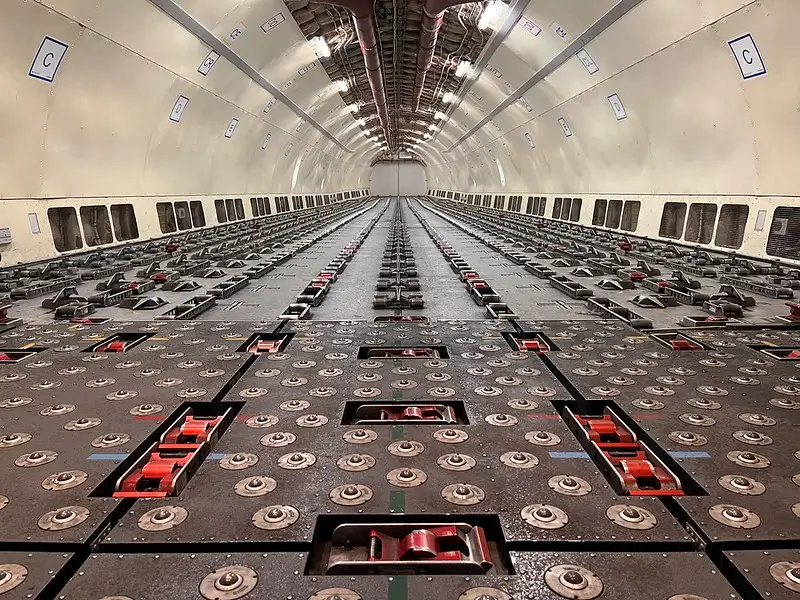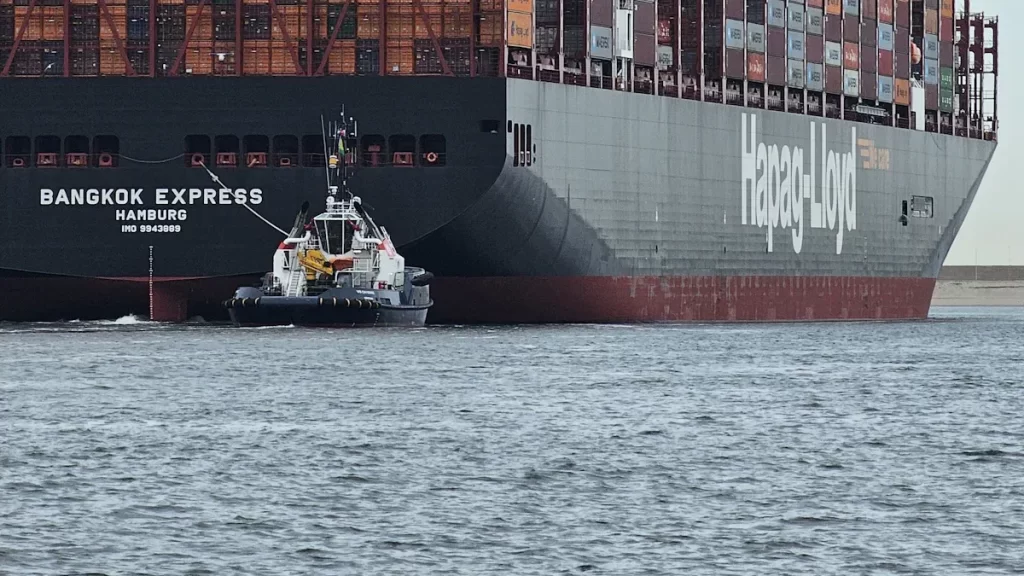- By Della tj
- September 22, 2025
- Air Freight, Shipping
Rising global trade has made businesses depend heavily on air cargo for efficiency. For companies importing goods, understanding China air freight rates is critical to balancing cost, speed, and supply chain reliability. Although air shipping is costlier than sea freight, it ensures quick delivery, reduced warehousing needs, and higher security for time-sensitive cargo. This guide explores rates, transit times, and practical strategies for importers.
What Are China Air Freight Rates?
Air freight rates are the charges airlines or forwarders impose to transport goods by air. Unlike ocean freight, pricing depends on weight and volume rather than container size.
- Chargeable weight is based on whichever is higher: actual weight or volumetric weight.
- Dynamic pricing means costs change based on seasonality, fuel, and airline capacity.
- Global demand directly impacts rate fluctuations, especially before peak seasons.
Accordingly, businesses must continuously monitor changes to maintain accurate shipping budgets.
How Are Air Freight Costs Calculated?
Air freight rates usually include base charges plus additional fees.
Cost Calculation Example
| Factor | Description | Impact on Cost |
|---|---|---|
| Actual Weight | Physical weight of goods | Higher weight = higher cost |
| Volumetric Weight | (Length × Width × Height ÷ 6000) | Large but light goods increase |
| Fuel Surcharge | Airline fee reflecting fuel prices | Added per kg basis |
| Security & Handling Fees | Costs for cargo screening and airport handling | Added flat or per-shipment fee |
| Customs & Duties | Country-specific taxes | Paid by importer |
As a result, importers need to optimize packaging to avoid paying for unnecessary volumetric weight.
What Are Typical China Air Freight Rates by Destination?
Rates fluctuate by region. The following table shows average estimates in 2025.
Estimated Air Freight Rates from China (USD per kg)
| Destination | Rate Range (per kg) | Transit Time (Days) |
|---|---|---|
| USA (Los Angeles) | $5.50 – $7.00 | 3–5 |
| USA (New York) | $6.00 – $7.50 | 4–6 |
| Canada (Toronto) | $5.80 – $7.20 | 4–6 |
| UK (London) | $5.00 – $6.50 | 3–5 |
| Germany (Frankfurt) | $5.20 – $6.80 | 3–5 |
| Australia (Sydney) | $5.50 – $7.10 | 5–7 |
| Middle East (Dubai) | $4.80 – $6.30 | 3–4 |
Note:These are estimates. Final quotes vary based on shipment size, airline, and season.
Why Choose Air Freight Instead of Sea Freight?
Air freight suits businesses requiring speed, reliability, and security.
Air vs. Sea vs. Rail
| Mode | Transit Time | Cost Level | Best For | Drawbacks |
|---|---|---|---|---|
| Air Freight | 3–7 days | High | Electronics, fashion, perishable | Expensive for heavy cargo |
| Sea Freight | 20–40 days | Low | Bulk goods, furniture, machinery | Long transit times |
| Rail Freight | 15–25 days | Medium | Landlocked Europe, moderate goods | Limited coverage, higher than sea |
Without a doubt, air freight offers unmatched speed, making it ideal for industries like electronics, pharmaceuticals, and luxury goods.
Real-World Cases of Air Freight from China
Case 1: Electronics from Shenzhen to Los Angeles
- Cargo: 1,200 kg smartphones
- Mode: Air freight direct flight
- Cost: $7,200 total
- Transit Time: 4 days
- Result: Retailer launched new product line on time.
Case 2: Apparel from Guangzhou to London
- Cargo: 850 kg of fashion apparel
- Mode: Air freight consolidated
- Cost: $5,100
- Transit Time: 5 days
- Result: Seasonal clothing arrived before sales peak.
What Factors Affect China Air Freight Rates?
Several variables influence pricing:
- Fuel prices: Rising fuel directly increases surcharges.
- Capacity demand: During holidays, airlines raise prices due to higher demand.
- Cargo type: Hazardous or temperature-sensitive goods incur extra handling charges.
- Trade lanes: Popular routes like China–USA or China–EU can fluctuate weekly.
Additionally, unpredictable global events like pandemics or strikes can cause sudden spikes.
How to Save Money on China Air Freight Rates?
Businesses can apply strategies to reduce costs:
- Book early during peak seasons.
- Consolidate shipments to lower per-unit charges.
- Negotiate long-term contracts with forwarders.
- Optimize packaging to reduce volumetric weight.
- Leverage different airlines for competitive pricing.
For example, switching from direct flights to consolidated services may reduce costs by 10–20%.

What Documents Are Required for Air Freight?
Proper documentation ensures quick customs clearance.
Customs Documents Checklist
| Document | Purpose |
|---|---|
| Air Waybill (AWB) | Contract of carriage and proof of shipment |
| Commercial Invoice | Declares goods’ value and description |
| Packing List | Details shipment contents and weight |
| HS Code Declaration | Determines duties and classification |
| Importer’s License | Required for restricted goods |
| Certificate of Origin | Needed for trade agreements and tariff exemptions |
Moreover, missing documents often cause delays and additional storage charges at destination airports.
Can Small Businesses Use Air Freight?
Yes, small and medium enterprises benefit greatly from air cargo. Although costs are higher, the reduced lead times improve cash flow and customer satisfaction.
For example, e-commerce sellers rely on fast shipments to keep up with consumer demand and seasonal sales cycles.
Should You Use a Freight Forwarder for Air Cargo?
Freight forwarders simplify the process by negotiating rates, managing customs, and tracking shipments.
Benefits include:
- Access to consolidated cargo rates.
- Expertise in customs compliance.
- End-to-end visibility with online tracking.
- Risk reduction for delays and penalties.
Therefore, forwarders are often essential partners, especially for first-time importers.
Conclusion
In conclusion, China air freight rates may be higher than sea freight, but the benefits of speed, reliability, and security often justify the investment. By understanding pricing structures, required documents, and cost-saving strategies, businesses can effectively manage logistics. Partnering with freight forwarders ensures smoother operations, enabling importers to remain competitive. Ultimately, for time-sensitive cargo, choosing China air freight rates delivers unmatched efficiency in global trade.
- Consult TJ China Freight Forwarding for the lowest quote. They will provide you with reliable, cost-effective service.
FAQs
Q1.How do peak seasons affect China air freight rates?
During peak seasons, China air freight rates rise sharply due to limited space, so early booking guarantees lower costs.
Q2.What is the cheapest way to book China air freight?
The cheapest way is using consolidated China air freight services, reducing per-kilogram costs by combining shipments with others.
Q3.How fast is China air freight compared to sea freight?
China air freight typically delivers in 3–7 days, while sea freight can take 20–40 days depending on the route.
Q4.Can small packages use China air freight services?
Yes, China air freight services accept packages as small as 45 kg, ideal for urgent e-commerce or sample shipments.
Q5.Can businesses track shipments booked with China air freight?
Yes, businesses receive real-time tracking updates for shipments booked through airlines or forwarders handling China air freight.





